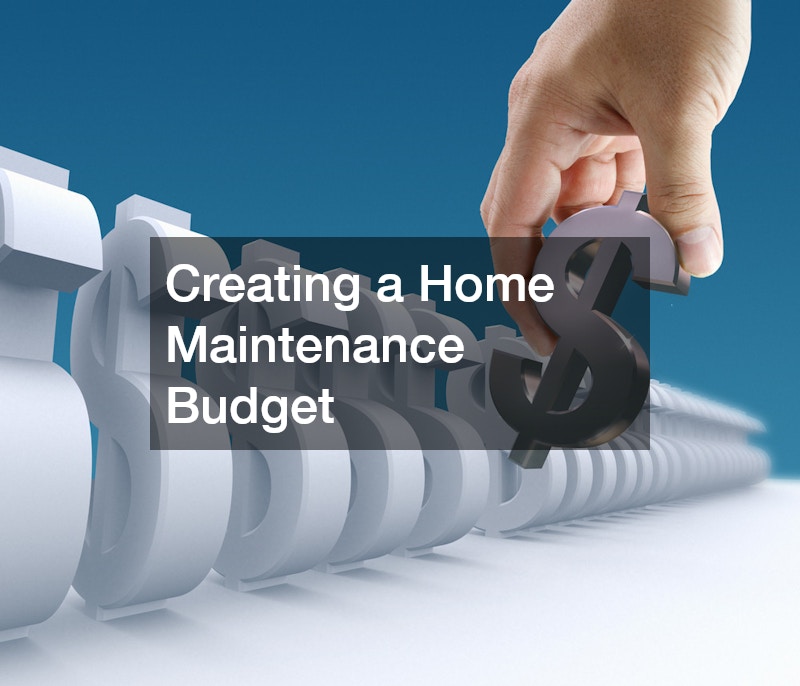Managing a household on a tight budget comes with its own set of challenges, especially for homeowners. Beyond managing everyday expenses, it is necessary to maintain a well-functioning household without overspending. This article is designed to offer practical budgeting advice to assist low-income homeowners in navigating these financial waters effectively.
Homeownership brings with it a range of expenses that can quickly add up. From routine maintenance and unexpected repairs to utilities and mortgage payments, the financial responsibilities of owning a home are significant. Without a clear plan, it’s easy to feel overwhelmed by these costs, particularly for those managing limited income. Having a structured budget in place not only helps control spending but also ensures that your home remains a safe and comfortable space without draining your finances.
Another essential aspect of budgeting for homeowners is preparing for long-term needs. Home improvements, insurance, and property taxes are just a few of the larger expenses that often require advance planning. Setting aside money for these future costs can prevent financial strain when they arise, allowing you to handle major expenses without taking on debt. By taking a proactive approach and making informed decisions, you can stretch your budget to cover both everyday necessities and larger, long-term home investments.
This guide will walk you through actionable budgeting tips, helping you prioritize your spending and find opportunities to save. Whether you’re looking to cut monthly expenses or prepare for big-ticket home projects, these strategies will equip you with the tools you need to manage your finances with confidence.
1. Setting Realistic Budget Goals for Your Home
Creating a budget begins with establishing realistic goals based on your income. To save on expenses like patio screens and awnings, it helps to research affordable options and set aside a specific amount each month to avoid large, unexpected costs. Successful low income budgeting requires a detailed understanding of both current and future needs, ensuring you stay ahead of potential financial shortfalls.
Information on patio screens and awnings is crucial in tailoring budget goals as they can provide energy savings and comfort at an affordable cost. Setting aside funds and making small investments in these areas can prevent larger expenses, like increased cooling costs. Effective budgeting also involves identifying areas where spending can be reduced without compromising the quality of life.
Homeowners should consider their home’s specific needs and prioritize tasks that align with their financial capacity. While it may be tempting to cut corners or avoid certain purchases, a strategic approach to budgeting will ensure sustainable home management. Including affordable upgrades, such as quality patio screens and awnings, can be a long-term investment in household comfort and efficiency for those on a tight budget.
2. Creating a Home Maintenance Budget
Proper home maintenance is a critical aspect of low income budgeting for homeowners. Setting aside funds for the upkeep of areas like kitchen cabinets helps maintain a home’s value and avoids costly repairs down the line. Prioritizing maintenance tasks can keep a household running smoothly and prevent small issues from becoming significant problems.
Your kitchen cabinets may require regular maintenance such as tightening hardware or replacing worn handles, which can often be achieved with minimal expense. Budgeting for these small tasks can extend the life of your cabinets, preserving both functionality and aesthetics while following a budgeting approach. Planning these expenses in advance helps manage cash flow and avoid financial strain.
Integrating a regular maintenance schedule into your monthly or yearly budgeting strategy assists in preventing larger unforeseen expenses. With a focus on home care, homeowners can ensure long-term savings by making consistent, well-planned investments in essential areas like kitchen cabinets. Low income budgeting that includes a home maintenance plan can streamline expenses and keep your household in top condition.
3. Prioritizing Essential Home Repairs
A key aspect of low income budgeting is prioritizing essential home repairs that ensure the health and safety of your household. Employing a reputable residential roofer for roof inspections and repairs can prevent larger, more costly issues down the road. Proper budgeting ensures that funds are available for these necessary repairs when they are most needed.
Regular roof maintenance by a professional residential roofer can prevent water damage and improve energy efficiency. Scheduling assessments by experts ensures that you address potential roof issues before they escalate. Homeowners engaging in budgeting must acknowledge that strategic investments in home repairs can save money in the long run.
Choosing affordable maintenance options that provide immediate benefits is crucial in effective budgeting. Promptly addressing small issues with your roof can prevent extensive damage and maintain the integrity of your home over time. Prioritizing maintenance tasks based on urgency and budget allows homeowners to manage repairs prudently without straying from their financial plans.
4. Building an Emergency Fund for Homeowners
An emergency fund provides a safety net for homeowners, particularly valuable within a budgeting framework. Allocating a portion of your income to build this fund ensures you have resources for urgent repairs or unexpected issues. This approach proactively addresses financial uncertainties and aligns with sustainable household management.
Incorporating a home insurance plan as part of your emergency fund strategy can offer additional protection against unexpected damages. By combining savings and insurance coverage, you can mitigate potential repair costs significantly. This strategy not only protects your home but also ensures financial resilience within a budgeting plan.
Building an emergency fund takes time and perseverance but offers peace of mind in the face of unexpected home-related issues. Consistent contributions, no matter how small, accumulate over time and ease financial stress. Effective low income budgeting involves planning for the future with a focus on preserving your household’s safety and stability against unforeseen expenses.
5. Tracking Monthly Household Expenses
Accurate tracking of monthly household expenses is vital for successful budgeting. Understanding exactly how much is spent on various categories ensures homeowners remain within their budget and identify areas for cost savings. Allocating funds to necessary expenses, such as pressure washing services, ensures your home’s exterior remains in excellent condition.
By utilizing charts or budgeting software, you can simplify the monitoring of your spending habits. External maintenance tasks like pressure washing, if left unattended, can lead to deterioration over time, necessitating more significant repairs. Regular monitoring of these expenses empowers homeowners to adjust their budgets accordingly and maintain their homes effectively.
Meticulously accounting for monthly expenses builds a comprehensive understanding of your financial overview, aiding decision-making in future spending choices. Fine-tuning your budgeting strategy can uncover hidden savings and create a financial cushion that supports home upkeep. This awareness can lead to smarter financial decisions that fortify low income budgeting goals.
6. Saving on Home Renovations
Home renovations often come with a high price tag, but with budgeting, it is possible to make improvements without overspending. Understanding which projects, such as bathroom renovations, provide the most impact for their cost, is essential. Choosing materials and designs that enhance longevity and comfort without incurring large expenses supports a budget-friendly renovation approach.
For smaller scale enhancements like bathroom renovations, opting for affordable fixtures and finishes can dramatically alter a space’s appearance at a fraction of the cost. Planning and efficient execution are crucial components in keeping renovation expenses manageable. Avoiding unnecessary add-ons reduces costs while still achieving an aesthetically pleasing result within your income constraints.
The key to cost-effective home renovations lies in evaluating potential return on investment against the initial expenditure. Prioritizing projects based on necessity and expected energy savings can lead to long-term financial benefits. Approaching renovations with a low income budgeting mindset ensures improvements suit both aesthetic desires and financial capabilities.
7. Investing in Affordable Furniture
Furnishing a home on a restricted budget requires strategic purchasing decisions. Exploring a furniture outlet can provide quality options at reduced prices compared to traditional retailers. A carefully curated selection of affordable furniture pieces enhances living spaces while aligning with budgeting constraints.
Furniture outlets often carry a wide array of styles, allowing homeowners to achieve their desired aesthetic without exceeding their budget. These outlets offer clearance or discounted items that still promise durability and attractiveness. Smart furniture investments allow you to allocate funds across other household needs effectively.
Selecting versatile pieces that serve multiple functions is another cost-saving measure. Convertible or modular furniture can adapt to various living arrangements without requiring multiple purchases. Smart shopping habits and quality selections enable homeowners to maintain home comfort without sacrificing financial stability.
8. Regularly Inspecting Your Home
Consistent inspections are integral to budgeting and preserving a home’s value. Engaging general contractors for periodic evaluations can detect early signs of damage or wear. This preemptive approach prevents small issues from escalating into costly repairs, helping to allocate resources efficiently.
General contractors offer a comprehensive assessment of your home’s overall health, providing peace of mind. Preventative maintenance lowers the chances of surprise repairs, supporting financial planning. Regular discussions with contractors build an understanding of potential future expenses, facilitating mindful budget adjustments.
Committing to a routine inspection schedule allows homeowners to maintain their property’s integrity affordably. Budgeting for frequent small fixes can be more manageable than addressing major damage all at once. Low income budgeting revolves around managing resources wisely and avoiding significant, unexpected expenses, goals that regular inspections help achieve.
9. Cutting Energy Costs to Reduce Monthly Bills
Lowering energy consumption is a key component of low income budgeting, as it noticeably reduces monthly utility expenses. Choosing energy-efficient upgrades, such as modern ac installations, can lead to substantial savings. Homeowners can evaluate their current systems and identify areas where efficiency can be improved to lessen overall expenses.
Investing in energy-efficient machinery may initially seem costly, but the reduction in utility bills over time offers tangible savings. Systems like efficient ac installations decrease energy consumption, benefiting both your wallet and the environment. Prioritizing these upgrades ensures you align financial priorities with sustainability goals.
Engaging professionals for installations also ensures optimal system performance and longevity. Reliable ac installations provide comfort without the strain of excessive power usage. In the long term, wise energy-saving choices directly support low income budgeting, allowing homeowners to maintain a comfortable living environment while controlling costs.
10. Prioritizing Security and Preventing Theft
Ensuring home security prevents costly thefts and damages, a must in a budgeting strategy. Collaborating with security gate companies to install sturdy gates or fences adds a layer of protection to your home. An initial investment in proper security measures can prevent financial losses and ensure peace of mind.
Security gate companies provide various solutions tailored to differing needs and budget constraints, enabling homeowners to make informed decisions. Besides gates, implementing robust locks and surveillance systems supports comprehensive security. These precautionary measures form a protective barrier against potential threats, preserving your household’s belongings and finances.
In conjunction with prioritizing other essential expenses, homeowners should budget for regular security evaluations. Deterring potential intruders creates a safer living space while broadly supporting the integrity of your household budget. This preventive spending becomes integral to fortifying home defenses without overwhelming current financial plans.
Final Thoughts
Successfully managing a household on a limited income requires astute planning and thoughtful allocation of resources. By following the outlined tips, such as prioritizing essential repairs through a residential roofer or saving on seating from a furniture outlet, homeowners can effectively manage their households without financial strain. Implementing these low income budgeting strategies ensures sustainable household management and long-term financial stability.
Committing to regular home inspections, energy-efficient upgrades, and maintaining a versatile emergency fund can protect against unforeseen expenses. Strategies such as these offer a holistic approach to household financial management, allowing homeowners to meet immediate needs while planning for longevity. Low income budgeting is achievable with careful planning and resourceful spending.
Homeowners are encouraged to continuously refine their budgeting tactics and adapt to new financial goals as circumstances change. Building a secure, comfortable, and well-maintained home is possible even on a modest income with the right mindset and strategic decisions. Effective budgeting transforms potential financial limitations into opportunities for fiscal resilience and home improvement.















